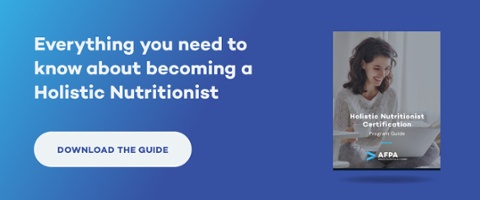4. Garlic
Garlic is another wonderful cancer-fighting food supplement. It contains an active component called allicin, a compound which has been shown to ward off cancer cells in many scientific studies.
Garlic also contains antibacterial properties as well as the ability to enhance genetic repair, slow down cell proliferation, and prevent the formation of carcinogenic substances in the body.
The health benefits of garlic include its natural antibiotic and antioxidant properties, both of which may help prevent cancer. Benefits have been found with garlic in relation to cancers of the stomach, colon, esophagus, pancreas, breast, and prostate. In several studies, garlic consumption has been found to reduce the risk of these cancers in half.
5. Carrots
There have been observations that have found that eating more carrots is linked to a decreased risk of certain types of cancers such as stomach, lung, and prostate.
Incorporating carrots in the daily diet may have contributed to the reduced risk of cancer, studies state.
There have also been examinations indicating a relationship between carrots and reduced risk of breast cancer by its intake. However, these studies only state about how the causes might interrelate but don't point out the other possibilities or consequences that might be faced by the body after the intake.
6. Cinnamon
Cinnamon is famous for how healthy it is for the human body, involving its ability to reduce blood sugar and ease inflammation leading to be an essential part of the diet for the betterment of metabolic processes in the body.
In some test-tube studies, it has been found that along with its capabilities being beneficial to diabetic patients, cinnamon may help halt the spread of cancer cells.
It is known to be loaded with antioxidants, thus making up to the list of superfoods that help in reducing cancer risk.
A natural herb and spice study found that cinnamon extract was able to decrease the spread of cancer cells and even cause cancer cell death.
7. Olive Oil
It's surprising how the olive oil drizzled on salads and vegetables has the caliber to reduce the risk of cancer in the body as well.
As extra virgin olive oil contains oleocanthal, it may help prevent a range of health situations and suppress melanoma, breast, liver, and colon cancer cells, according to the research.
The possibility of a mild but significant decrease in the risk of colorectal cancer through olive oil intake has been pointed out in studies done. Olive oil is loaded with health benefits, so it’s no wonder it’s one of the staples of the Mediterranean diet.
8. Turmeric
Turmeric is a popular spice used in many parts of the world. It is known to be of ancient importance and is used for medical purposes as well.
There has been research that shows that certain cancers had lowered their rates when there was relatively higher turmeric consumption.
Turmeric is well-known for its health-promoting properties. Several laboratory studies show that curcumin, turmeric’s active ingredient, is a chemical with anti-inflammatory, antioxidant and anticancer effects. Curcumin seems to be able to kill cancer cells and prevent more from growing. It also has effects on bowel cancer, stomach cancer, breast cancer, and skin cancer cells.
At the moment, there is no clear evidence in humans to show that turmeric or curcumin can prevent or treat cancer.
9. Citrus fruits
It’s obvious by now that the daily diet can affect the risk of developing cancer. Because of this, including healthy foods in daily diets is essential for maintaining the health of the body and keeping it less prone to the risk of cancer and other diseases.
Certain foods, including fruits, contain health-promoting compounds that may slow tumor growth and reduce certain side effects of treatment to help ease the path to recovery.
Eating citrus fruits such as lemons, limes, grapefruits, and oranges have been associated with a lower risk of cancer.
In some studies, citrus fruits, belonging to the genus Citrus of the family Rutaceae, contribute to cancer prevention because they are full of vitamin C and another antioxidant, antimutagenic, and antiproliferative constituents.
These studies suggest that including a few servings of citrus fruits in your diet each week may lower your risk of developing certain types of cancer, including digestive, respiratory, pancreatic, and stomach cancers.
These studies don’t account for other factors that may be involved. More studies are needed on how citrus fruits specifically affect cancer.
10. Tomatoes
Tomatoes can be enjoyed as slices on sandwiches, refreshing sweet bites in salads, and in sauces and soups. The nutritional value that a tomato holds is as diverse as its forms used in.
Research confirms that the antioxidant lycopene, found in tomatoes, may be more powerful than beta-carotene, alpha-carotene, and vitamin E.
Lycopene is a cancer-fighting substance found in tomatoes associated with protection against certain cancers such as prostate and lung cancer. Cooking tomatoes releases this lycopene, which is beneficial for the body.
The body may absorb lycopene better from processed tomato foods such as sauce, which means that eating pizza or spaghetti could be a delicious way to enjoy this cancer-fighting food.
In conclusion
There are still studies in progress that are looking through the process of cancer reduction risk via diet sources. Most of the studies ensuring these foods contributing to the reduced risk of cancer are tested upon cells or mice.
It must also be noted that no food guarantees protection against cancer completely. The term cancer-fighting foods refer to foods that may lessen the risk of developing cancer if a person includes them in their diet.



0 Comments